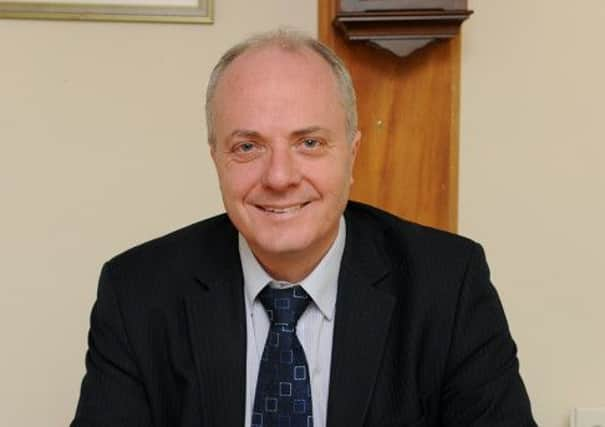Service in huge region ‘coming under strain’


The York Teaching Hospital NHS Foundation Trust runs 10 hospitals, among them York, Scarborough and Bridlington, as well as a range of community services, covering 3,400 square miles.
Its growing problems are typical of many NHS trusts. After delivering tens of millions of pounds in efficiencies since 2009, it must find another £25m in savings in 2014-15 and more after that.
Advertisement
Hide AdAdvertisement
Hide AdUnprecedented demand for emergency care saw it hit the key A&E target to treat 95 per cent of patients within four hours in the last year only between January and March thanks to huge investment in winter pressures.
Difficulties with doctor and nurse staffing in Scarborough’s A&E led external experts to note in May that recruitment was “a significant threat for the future”. The trust is likely to be one of the first in the country to offer recruitment and retention premiums to doctors to work there.
Further shortages of doctors have led to unpopular changes to local eye clinics which have been withdrawn from Whitby and Selby hospitals, leaving patients with further to travel.
Now its financial outlook is worsening significantly, triggering a public warning by chief executive Patrick Crowley “real and sustained change is required”.
Advertisement
Hide AdAdvertisement
Hide AdHe added: “If we can’t provide better and more comprehensive services in the community, collectively, then hospital services will continue to be squeezed at an unaffordable, and increasingly unsafe level.”
But the problem remains that fundamental changes are needed at the same time as services are maintained in a difficult financial climate and when there are also national demands to drive up quality and focus on patient safety.
Mr Crowley told The Yorkshire Post: “We are facing a significant efficiency requirement in a system that is becoming almost over-cooked and it’s becoming ever more difficult. We need to achieve those savings and continue to provide what we have always provided because we don’t have the option to reduce what we do.”
One key development on the east coast has led to the opening at Bridlington’s hospital of a centre dealing with planned orthopaedic operations, leaving Scarborough’s hospital to deal with unscheduled treatment.
Advertisement
Hide AdAdvertisement
Hide AdGPs plan to set up new urgent care centres in Scarborough and Ryedale open round the clock to provide a one-stop shop for patients and relieve A&E pressures.
Plans are also being put in place to create community hubs in Malton and Selby to co-ordinate the management of patients with long-term conditions to avoid unnecessary hospital admissions and promote self-care, exercise and rehabilitation.
Mr Crowley said: “I think generally if we invest in alternatives to hospital care that will help manage people more sustainably out of hospital and avoid all but the most acute admissions it will give us more space and time to provide the quality of care we aspire to.”
He said there was no evidence that alternative provision would enhance the financial sustainability of the health service.
Advertisement
Hide AdAdvertisement
Hide Ad“It will be a test of any government of the day to assess what spend it wishes to make on the health service going forward,” he said. “For me there has to be a reality check on what we can provide given the financial constraints we have in the face of growing demand.”